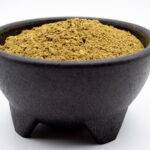
Yellow Bali Kratom Review: A Soothing Mellow Strain
August 21, 2019
Plantation Maeng Da Review: A Superior Strain or a Hoax
September 27, 2019As the popularity of kratom has soared, so has the number of buyers and those willing to try it. As a result, the number of vendors offering it has also grown.
On one hand, that may seem like a great thing. More vendors mean more buying options that can drive prices down. On the other hand, however, a market that remains largely unregulated allows plenty of room for bad players to take advantage of the situation.
We’re speaking about fake kratom vendors and kratom scams.
What Is Fake Kratom
Fake kratom is any type of kratom product that does not correspond to the labeling on its package. It can be:
- A completely different botanical product that may also be unsafe,
- Another type of Mitragyna that is not speciosa, for instance, Mitragyna parvifolia that grows in India resembles Mitragyna speciosa, yet has very weak or no beneficial properties in comparison with its cousin.
- Adulterated kratom
- Contaminated kratom
- Old kratom that’s repackaged to look new
- Stolen kratom that’s not passed proper testing.
Tips to Avoid Fake Kratom
1. Check a Kratom Vendor’s Website
You should always regard issues with a kratom vendor’s website as red flags. Look for pages like Contact, About Us, as well as their policies.
A proper vendor’s contact information should be easily located and they should have invested some time and effort into developing an About page that speaks about their values and driving factors for selling kratom.
Look through their policies, especially their Return Policy. If there is none or there are no options to get your money back, you may want to avoid them.
A good sign is if a vendor has an informative blog. Developing one takes time and money. The vendor either need to write posts by themselves or hire someone to do that in their stead. If their aim to is scam people to get a quick buck from selling fake kratom, it’s unlikely that they’ll go through the hassle and spend their resources to develop a blog.
If you’ve found (or have been found) by a vendor who has no website, we’d advise staying away from those. It’s highly likely that nothing good is going to come out of that.
2. Evaluate the Price
There is expensive kratom. There is affordable kratom. And there is cheap kratom. Most of the times, you get what you pay for.
Though, sometimes, you may not get anything at all.
This may happen if kratom is extremely cheap or a deal seems to be too good to be true. Came across super cheap kratom on eBay, Craigslist, or a similar platform? And they have no website? Don’t just scroll past, shut the tab completely. It’s either fake on non-existent kratom.
Someone located you through kratom groups on Facebook and offering to send you 15 kilos of kratom for $1000. Most likely, that’s not worth your money, despite how appealing that deal looks.
3. Look for Reviews
Verified reviews and testimonials on a vendor’s website are usually a good sign. While faking reviews is possible, it’s highly unlikely that a fake vendor would fake hundreds of reviews.
Often, it’s also a good sign if there are a few not so positive reviews rather than just perfect 5-star reviews. You can’t please everyone, and the vendor is being honest about that.
4. Check Lab Test Results
Ever since we experienced the kratom Salmonella outbreak in 2018, trustworthy kratom vendors began displaying their kratom lab test results on their website as proof of the quality and purity of their products. Finding those is usually a good sign.
However, you may want to avoid kratom vendors who’ve repeatedly gotten in the news for selling contaminated or fake kratom. If they have allowed that to happen several times, then it’s likely that they are not properly testing their products.
5. Avoid Buying Kratom from the Source
While buying kratom directly from Indonesia may appear like a great idea, your risks of getting low-quality, inconsistent, or fake kratom, or no kratom at all, are much higher.
We know from personal experience and having lost thousands of dollars while establishing connections with local farmers in Indonesia.
Moreover, sanitary conditions in Indonesia are nowhere near those in America and you would be buying untested kratom. As a result, you won’t be able to know for sure what exactly you have received.
6. Avoid Buying Kratom Locally
Unless your state has passed the Kratom Consumer Protection Act, kratom remains unregulated. Therefore, it’s up to the local vendor to determine whether and how they ensure that their kratom products are pure. Moreover, it is more expensive to buy kratom locally than online.
7. Watch Out for Flashy Marketing
The packaging that kratom comes in should represent the product. Since it’s a natural botanical substance, it usually comes in packaging that is simple. If it’s overly flashy and shiny, that’s usually not a good sign.
In addition to that, examine the language used to advertise the product. If it is describing kratom in a way that misrepresents it, it may be fake kratom.
If you’d like to learn more tips about how to buy great quality kratom, see our kratom buying guide.
If you would like to purchase kratom, check us out. We are a Nevada-based vendor who imports kratom from Indonesia. Since Nevada has passed the Kratom Consumer Protection Act, kratom is regulated in our state, so you can rest assured that our products are lab-tested and pure. Check out our kratom products and what our buyers say.






